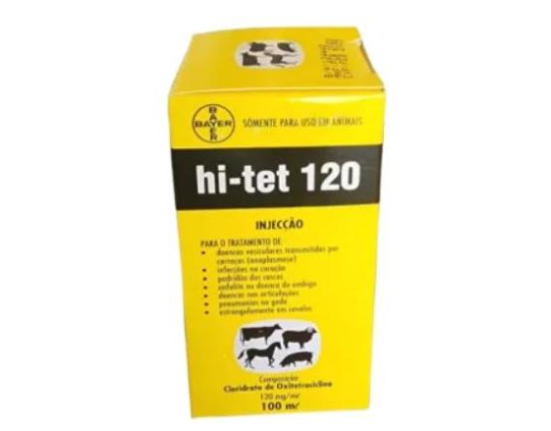Newly approved amendments to the China Anti-Unfair Competition Law enhance protections against unfair business practices, with a focus on trademarks, trade secrets, and fraudulent online marketing practices. For foreign companies, the changes offer a fairer business environment but also demand stricter compliance with updated rules on marketing and digital operations.
On June 27, 2025, the Standing Committee of the National People’s Congress (NPCSC) approved significant revisions to the China Anti-Unfair Competition Law (AUCL). The amendments strengthen protections for businesses against unfair competitive practices, including enhanced safeguards for trademarks and trade secrets. They also make crucial changes to the law to keep it up to date with the current realities of digital spaces by tackling common fraudulent behavior that impedes fair competition online.
For foreign companies operating in or engaging with the Chinese market, the amendments present both improvements to the business environment by creating a fairer business environment and making it easier to report cases of unfair competition to authorities. At the same time, they will also require more careful scrutiny of marketing and online sales practices, as well as the practices of any third party conducting marketing on their behalf, to ensure compliance with the more stringent provisions on unfair competition.
The amendments will come into force on October 15, 2025.
Start exploring
Key amendments to the AUCL
Expanded trademark protections
The amended AUCL significantly enhances protections for trademarks by broadening the definition of “acts of confusion” and explicitly prohibiting the unauthorized use of trademarks in both digital and offline business practices. Under the revised Article 7, it is now clearly unlawful to use another person or entity’s registered trademark—or a well‑known but unregistered trademark—as part of a company’s trade name. Such actions are officially classified as acts of confusion and are strictly forbidden.
The amendments further bar operators from using another company’s product name, enterprise name (including abbreviations and trade names), registered trademark, or well‑known unregistered trademark as search keywords in a way that could mislead consumers into believing their products belong to another entity, or that there is an affiliation or connection between the two businesses.
Protections for digital identifiers, which were already included in the 2017 version, have also been expanded to include social‑media account names and mobile application names, in addition to the domain names, website names, and webpages.
Crucially, the law now also imposes liability on operators who facilitate these deceptive practices—not just those who carry them out directly—closing loopholes often exploited in online marketing and brand manipulation.
Violation of Article 7 can result in both civil and administrative penalties, including:
- If the violation causes damage to another party: Compensation paid to the victim based on the actual losses suffered by the victim or the profits earned by the infringer. When these amounts are difficult to determine, the court may award damages of up to RMB 5 million (US$697,798), depending on the circumstances.
- Being ordered to stop the illegal conduct and confiscate any illegal goods involved.
- If the illegal turnover exceeds RMB 50,000 (US$69,779), fines of up to five times the illegal turnover can be imposed.
- If the turnover is less than RMB 50,000 or absent altogether, a fine of up to RMB 250,000 (US$348,899) may be levied.
- In particularly serious cases, the operator’s business license may be revoked.
Those who unknowingly sell infringing goods may avoid administrative penalties if they can prove lawful acquisition and identify the source. Additionally, operators found to have registered business names in violation of Article 7 must promptly apply for a name change; failing that, the registration authority will substitute the name with a unified social credit code.
Expanded trade secret protections
Trade secret protections under the AUCL have been significantly broadened. The amended law introduces new forms of trade secret infringement, including electronic intrusion, reflecting how cyber tactics are increasingly used to unlawfully access confidential business information. It also expands liability to those who induce, encourage, or assist others in violating confidentiality obligations.
Another major change is that these prohibitions no longer apply solely to business operators. Individuals and non-business entities (such as consultants or former employees) who improperly acquire or misuse trade secrets can now be held directly liable. Businesses must tighten internal controls and third-party agreements, especially around employee exits and contractor engagements, to remain compliant.
Stronger digital fair competition rules
The amended AUCL seeks to tackle new challenges that digital technologies pose to the governing of competition in online environments. Businesses that operate online are now subject to more explicit and detailed restrictions on the misuse of digital tools and platform mechanisms to interfere with competitors.
Under the previous version of the AUCL, companies were prohibited from using “technological means” to obstruct or sabotage the legitimate digital products or services provided by others. However, the amended law now clearly states that this also includes the use of data, algorithms, and platform rules to distort user choices or damage a competitor’s operations. This means companies can no longer exploit platform rules, personalized feeds, or backend algorithm design to unfairly direct traffic away from rivals.
Furthermore, businesses are forbidden from obtaining or using data legally held by other businesses through fraud, coercion, circumvention, or destruction of technical management measures. They are also forbidden from abusing platform rules and carrying out false transactions, fake reviews, or malicious return fraud against other operators, or instructing others to do so on their behalf. Such conduct, even when carried out by users at the instruction of a business, now clearly constitutes unfair competition under the amended law.
Protections for SMEs operating online
Recognizing the disproportionate pressure faced by small and medium-sized enterprises (SMEs) in platform economies, the amended AUCL has added two new articles specifically aimed at preventing abuse by dominant players. Platform operators are now expressly forbidden from using pricing rules to coerce vendors into selling below cost, a tactic often used to maintain traffic at SMEs’ expense.
Similarly, large enterprises are barred from exploiting their scale or influence—such as through delayed payments or unfair contract terms—to force SMEs into unfavorable deals. These provisions are intended to level the playing field and ensure that smaller companies can compete on fairer terms within digital ecosystems.
Where a dominant business exploits its position to impose unfair conditions on SMEs, supervisory agencies can order corrective measures, and companies that fail to comply face fines of up to RMB 1 million (US$139,559), or up to RMB 5 million (US$697,798) in serious cases.
Prohibiting changes to rewards after launch
Article 11 of the amended AUCL now prohibits changing the conditions of a reward program after it has been launched. Adding a new item to the article, it now explicitly prohibits “changing the type of rewards, redemption conditions, reward amount, or other promotional information after the activity has begun, without just cause.”
This provision aligns with Article 13 of the Interim Provisions on Regulating Promotional Activities, which requires businesses to publicly disclose all relevant reward promotion information—such as reward types, conditions for participation, reward values, and redemption procedures—prior to launch. Once published, these details must not be changed, restricted, or interfered with unless the changes are favorable to consumers.
In practice, “just cause” exemptions are interpreted narrowly, typically applying only to minor clerical errors or adjustments that clearly benefit the consumer.
Commercial defamation: “Instructing others” now explicitly included
Article 12 of the amended AUCL expands the scope of commercial defamation by explicitly prohibiting a business from instructing others to fabricate or disseminate false or misleading information about competitors.
Common scenarios that fall under this include:
- Hiring fake reviewers or reputation agencies to inflate or tarnish a product’s reputation;
- Commissioning marketing agencies to post malicious reviews or conduct reverse fake orders; and
- Multi-channel network (MCN) agencies or online influencers engaging in “reverse seeding” (intentional negative comparisons) or biased competitive advertising.
It is worth noting that while comparative evaluations of similar products—such as in short videos or livestreams—may fall under free speech, comparisons made using unscientific or one-sided assessments could still amount to commercial defamation under the amended law.
Extraterritorial application of the law
The AUCL now includes an extraterritoriality clause that extends enforcement to conduct occurring outside of China’s borders if it harms Chinese businesses or disrupts competition in the Chinese market. In practical terms, this means that a foreign parent or an overseas affiliate can trigger liability for a China‑based subsidiary if the offshore conduct harms Chinese competitors or distorts competition at home.
For multinational companies, this means marketing campaigns, public relations strategies, and data practices undertaken anywhere in the corporate family can now carry AUCL risk inside China. Compliance teams should therefore extend their unfair‑competition reviews beyond China‑registered entities to include parent companies and overseas affiliates whose actions might reverberate in the Chinese market.
Other notable changes
Enhanced anti-bribery measures
Article 8 of the revised law, which bans the provision of bribes to members of a business’s counterparty, has been amended to also prohibit the acceptance of bribes, thereby tackling the problem from both sides.
Stricter prohibition on false reviews and deceptive promotion
Amendments to Article 9 make it explicitly illegal for businesses to assist others in fabricating reviews to make false or misleading commercial marketing. This change targets the increasing use of fake online reviews and ratings manipulation that mislead consumers and distort market competition. Companies engaging in digital marketing or platform-based commerce should ensure their promotional strategies and third-party partnerships do not involve fake or misleading endorsements.
Platform responsibility for enforcing fair competition
Platform operators are now explicitly required to foster fair competition within their ecosystems. This includes embedding fair competition principles into user agreements, providing mechanisms for reporting and resolving unfair practices, and actively addressing misconduct by platform participants. Importantly, platforms must report such violations to regulatory authorities and retain records of how they handled them.
This puts new operational and compliance obligations on platforms—not only must they avoid engaging in unfair competition themselves, but they must also monitor and manage the conduct of users on their platforms. Companies operating online marketplaces or app ecosystems will need to invest in policy enforcement infrastructure and legal oversight.
Shift in burden of proof for trade secret cases
The amended law shifts the burden of proof to the accused in trade secret litigation, once the right holder has presented reasonable preliminary evidence. This includes evidence that the suspect has channels or opportunities to obtain the trade secrets, or that the trade secret has been disclosed, used, or is at risk of being disclosed or used by the suspect.
Now, if a business can show that it took confidentiality measures and that its secrets have been accessed or used inappropriately, the alleged infringer must prove that no violation occurred.
This shift is expected to make it significantly easier for companies to protect their confidential information in court, especially in fast-moving tech and manufacturing sectors where trade secret leakage is common but hard to prove conclusively.
Key takeaways for foreign companies
The expanded scope of protections provided in the amended AUCL—especially for trademarks and trade secrets—offers greater safeguards for intellectual property and brand integrity in China’s market, potentially reducing risks from unfair competitive practices. However, these protections come with heightened compliance responsibilities. Businesses must carefully evaluate their marketing strategies, online sales practices, and the activities of third-party partners to ensure they do not inadvertently engage in or facilitate unfair competition, such as false advertising, fake reviews, or improper use of competitors’ data.
Meanwhile, the strengthened regulations on digital fair competition will require companies to be vigilant about how data, algorithms, and platform rules are used, not only by themselves but also by affiliated entities. With the law’s extraterritorial reach, actions taken by parent companies or overseas affiliates may expose China-based subsidiaries to liability, underscoring the importance of cross-border coordination and unified compliance frameworks.
Companies operating digital platforms should prepare for increased scrutiny on platform governance and dispute resolution mechanisms, as platform operators bear explicit responsibility to monitor and manage fair competition within their ecosystems. This means investing in compliance infrastructure and maintaining transparent records of how unfair competition issues are addressed.
Finally, the changes around the burden of proof in trade secret cases and stricter anti-bribery provisions signal that enforcement will be more rigorous. Companies should strengthen internal controls and employee training programs to mitigate risks related to trade secret protection and anti-corruption compliance.
About Us
China Briefing is one of five regional Asia Briefing publications, supported by Dezan Shira & Associates. For a complimentary subscription to China Briefing’s content products, please click here.
Dezan Shira & Associates assists foreign investors into China and has done so since 1992 through offices in Beijing, Tianjin, Dalian, Qingdao, Shanghai, Hangzhou, Ningbo, Suzhou, Guangzhou, Haikou, Zhongshan, Shenzhen, and Hong Kong. We also have offices in Vietnam, Indonesia, Singapore, United States, Germany, Italy, India, and Dubai (UAE) and partner firms assisting foreign investors in The Philippines, Malaysia, Thailand, Bangladesh, and Australia. For assistance in China, please contact the firm at china@dezshira.com or visit our website at www.dezshira.com.









